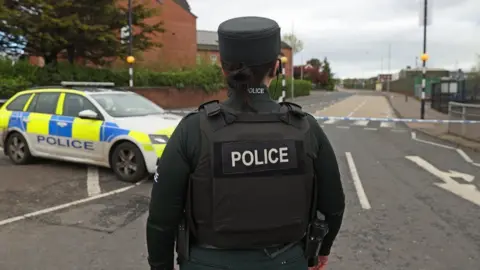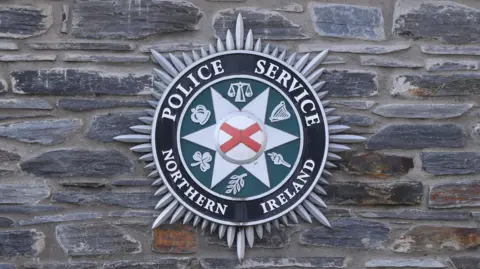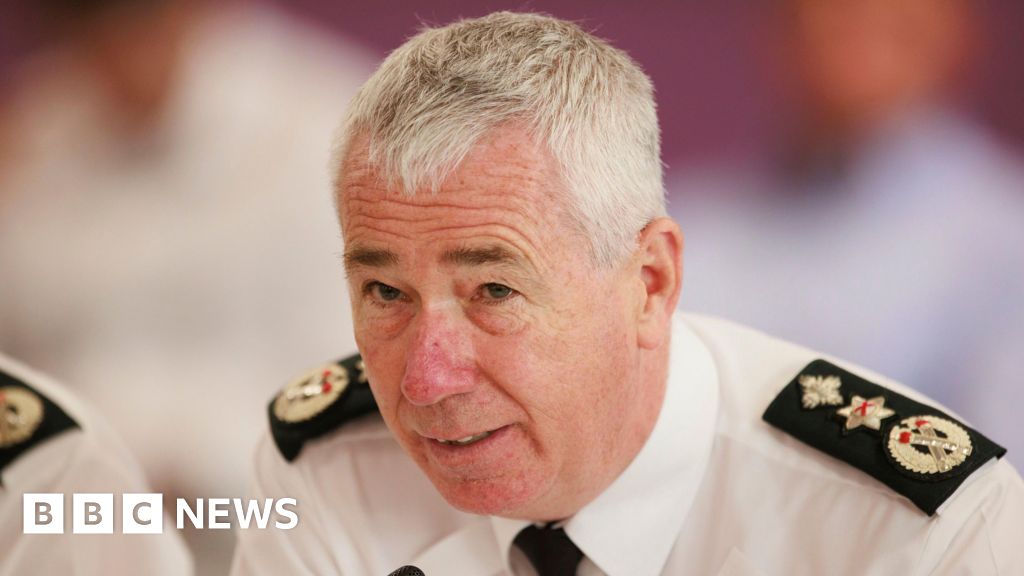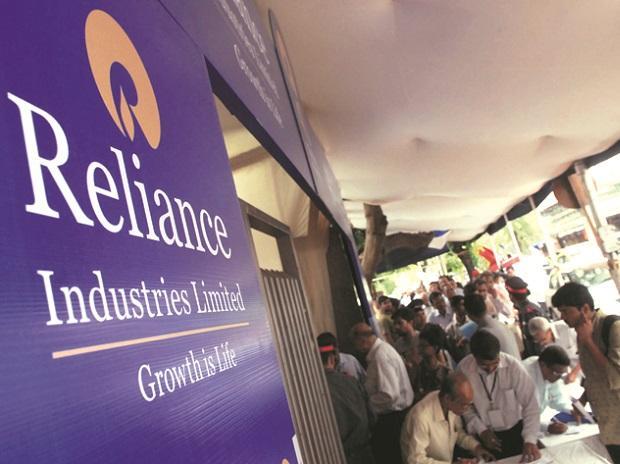 PA Media
PA MediaThe surnames, initials, rank and roles of the personnel were released under a freedom of information (FoI) request and published online for several hours.
The details were later obtained by dissident republicans.
The ICO had previously stated the fine would have been £5.6m had it not applied discretion.
This allows for lower fines when public bodies are involved, given payment comes from the public purse.
The £750,000 fine is the largest it has ever imposed on a public body in the UK.
A ‘proportionate’ fine
 PA Media
PA Media‘Worst data breach we’ve seen’
Speaking to the BBC’s Good Morning Ulster programme the UK Information Commissioner John Edwards said: “This is the worst data breach that we have seen.”
He said he believes accountability has been held after the PSNI data breach last year, even if no one loses their job.
“I don’t agree that no one is being held accountable,” he said.
He said he had no intention of reducing the fine.
He said it was “impossible to imagine the fear and uncertainty this breach caused PSNI officers and staff”.
“A lack of simple internal administration procedures resulted in the personal details of an entire workforce, many of whom had made great sacrifices to conceal their employment, being exposed,” he said.
Whilst acknowledging the financial pressures facing the PSNI, he said “my role as commissioner is to take action to protect people’s information rights and this includes issuing proportionate, dissuasive fines”.
PSNI’s budget shortfall
 PA
PAMr Boutcher said the fine would “further compound” the PSNI’s financial situation.
It currently has a £34m shortfall in its budget.
“As a service we are in a different place today than we were last August and we have continued to work tirelessly to devalue the compromised dataset by introducing a number of measures for officers and staff,” he said.
“We have provided significant crime prevention advice to our officers and staff and their families via online tools, advice clinics and home visits.”
The Police Federation also expressed disappointment at the fine.
“A fine of this magnitude on an already cash-strapped PSNI will have a negative impact on the organisation,” its chairman Liam Kelly said.
“We would have preferred if PSNI could have been permitted to alternatively spend the funds on enhancing its data security and provide much needed reinvestment in community initiatives such as road safety and CCTV partnerships with councils.”
The PSNI is currently involved in settling a damages case brought by up to 7,000 of those impacted.
Note:- (Not all news on the site expresses the point of view of the site, but we transmit this news automatically and translate it through programmatic technology on the site and not from a human editor. The content is auto-generated from a syndicated feed.))




